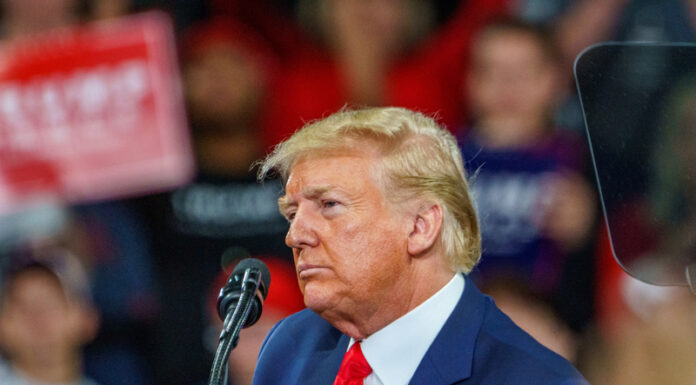The Trump administration is preparing an executive order to begin dismantling the Department of Education, marking a significant shift in federal education policy while acknowledging the president’s limited authority to eliminate the agency outright without congressional approval.
Trump promised during his presidential campaign to end what he calls ‘wokeness’ and ‘indoctrination’ at the department.
“Wokeness” is a term that emerged from African American vernacular meaning “alert to racial or social discrimination and injustice.” In recent political discourse, particularly among conservatives, it’s often used critically to describe what they view as excessive focus on progressive social justice issues, particularly in education and corporate settings.
The White House announced its plans on Monday, February 3, and said further action would occur later in February.
The planned executive order would “shut down all functions of the agency that aren’t written explicitly into statute or move certain functions to other departments,” according to White House sources familiar with the matter. The initiative comes as Elon Musk’s Department of Government Efficiency (DOGE) has already begun implementing similar changes at the U.S. Agency for International Development (USAID).
“I do not believe we need a federal department of homework checkers,” former House Speaker Newt Gingrich said in 1995, reflecting a long-standing conservative position that has now found new momentum.
The Education Department, which manages a $268 million budget, oversees funding for economically disadvantaged K-12 schools, special education programs, educational metrics and assessment, higher education funding, and federal student aid. Student aid programs constitute the majority of its funding disbursements.
Dozens of Department of Education employees received letters as business hours closed on Friday, placing them on administrative leave. This follows a pattern similar to recent actions at USAID, where Musk’s team has gained access to sensitive payment systems and reportedly locked some federal career employees out of their agency’s computers.
The timing of the executive order has created additional complexity as President Trump’s nominee to lead the department, Linda McMahon, awaits her confirmation hearing. Internal debate has emerged about how the executive order might affect McMahon’s ability to address questions about the president’s agenda during her confirmation process.
Representative Thomas Massie has simultaneously re-introduced legislation to abolish the Department of Education by 2026. “Unelected federal bureaucrats should not control children’s education,” Massie stated, advocating for state and local control of education policy.
The administration’s strategy appears to be two-pronged: using executive authority to reduce the department’s scope while simultaneously developing legislative proposals for its eventual elimination. Education experts warn that dismantling the department could significantly impact federal student loan administration, civil rights enforcement in schools, and support for low-income students.
Under former President Biden’s administration, Republicans were critical of the Education Department’s policies related to diversity, equity, and inclusion programs.
Elon Musk’s team has already put several thousands of people on leave. A government-wide pitch to at least two million federal workers has urged them to resign by September 30.
A federal judge in Massachusetts on Thursday, February 6 temporarily blocked the Trump administration from allowing around two million federal employees to voluntarily resign in exchange for seven months of pay. The program, set to expire at midnight, was part of a broader plan by President Trump and Elon Musk to significantly reduce the federal workforce.
Judge George O’Toole Jr., appointed by President Clinton, extended the deadline until at least Monday, when the court will review a legal challenge. The delay leaves uncertainty for more than 40,000 federal workers who had already agreed to participate in the program.
Over the past week, the Trump administration has pushed employees to accept the offer, while major government unions have urged them to reject it.
Despite the judge’s ruling, Trump and Musk’s efforts to downsize the federal government are expected to continue. The administration aims to cut staff at the U.S. foreign aid agency from over 10,000 to approximately 290 positions, and officials have been informed that about 800 contracts and awards managed by U.S.A.I.D. are being canceled.
Musk’s DOGE team has already gained access to a federal student aid dataset containing personal information on millions of student aid recipients, raising concerns about data security and privacy. The move comes after President Biden’s student loan forgiveness program, which Republicans strongly opposed.








